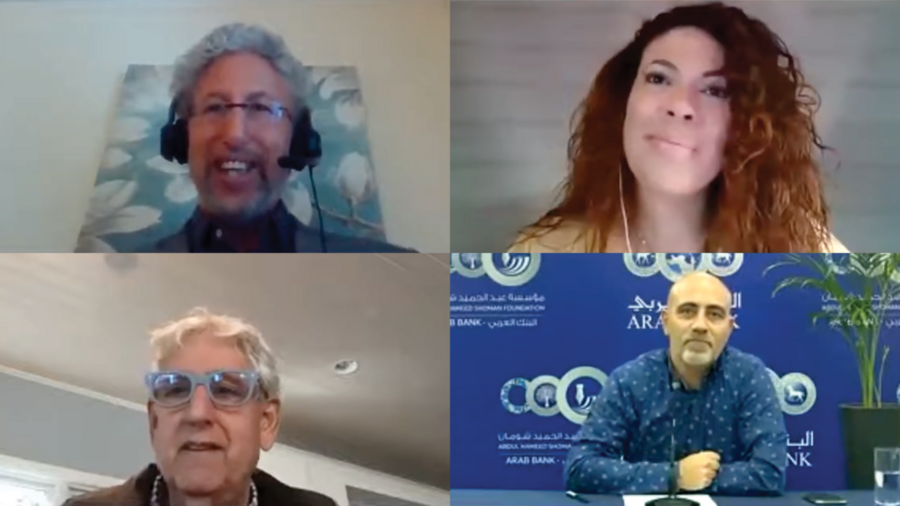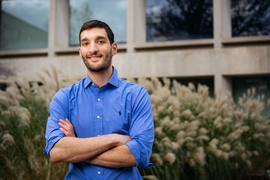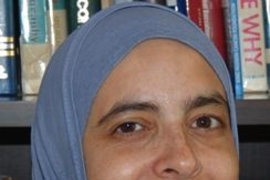Since MIT’s first major collaboration in the Middle East in the 1970s, the Institute has deepened its connection and commitment to the region, expanding to create the MIT-Arab World Program through the MIT International Science and Technology Initiatives (MISTI). This year, partnering with the Abdul Hameed Shoman Foundation (AHSF) in Jordan, the program is launching this first seed fund in Jordan as part of MISTI’s Global Seed Funds. The new fund aims to support joint early-stage collaborations between researchers and their students in Jordan and their counterparts at MIT, and will enable the MIT-Arab World program to move forward on its key objectives: build critical cultural and scientific connections between MIT and the Arab world; develop a cadre of students who have a deep understanding of the Middle East and North Africa region; and bring concrete value to the partners in the region.
“MIT’s connection to the Middle East is important now more than ever,” shares David Dolev, associate director of MISTI and managing director of programs in the Middle East. "Especially with so many international challenges, we need to be able to collaborate with our partners in the region to move forward global solutions. That is why we are especially excited to share the news of this new partnership in the region.”
On Aug. 31, over 150 people, the majority of whom were researchers from Jordan, participated in the official launch of the new MIT-Jordan Abdul Hameed Shoman Foundation Seed Fund. During the event, AHSF CEO Valentina Kassisieh and Scientific Research Department Manager Anwar El-Halah discussed the strategic partnership with Dolev and MIT professors Philip Khoury and Christine Ortiz.
"Since its establishment by the Arab Bank in 1978, scientific research has been an essential pillar of AHSF. The foundation launched the first pan-Arab scientific research awards in 1982, and it established the Scientific Research Fund to support Jordanian research in 2000. As thus, we are happy to partner with MIT, one of the most prestigious institutions of higher education in the world and a leader in research and technology,” said Kassisieh. “This joint fund will offer a great opportunity to our Jordanian researchers to develop their expertise and to work jointly with MIT faculty and researchers, deploying their knowledge jointly towards finding effective and innovative solutions to the challenges facing us in the region.”
Khoury, the MIT-Arab World faculty director, MIT associate provost, and Ford International Professor of History, is enthusiastic about the fund’s potential. “I am very excited about the launch of MIT’s new collaboration with the Kingdom of Jordan. The MIT-Jordan Abdul Hameed Shoman Foundation Seed Fund will enable MIT and Jordanian faculty to collaborate and move forward on major global challenges while engaging students from both Jordan and MIT.”
“This partnership will serve as a stepping stone for scientific collaboration and exchange between researchers from all Jordanian universities and research institutions and MIT faculty members. We also encourage faculty to involve their students in the collaborations,” agrees Kassisieh.
The MIT-Jordan Abdul Hameed Shoman Foundation Seed Fund provides financial grants with a maximum value of $30,000. Funds cover travel, meeting, and workshop costs, inclusive of visits to Jordan and MIT facilities in the United States.
"The new fund will, without a doubt, provide faculty and students with the needed tools and structure necessary to collaborate with Jordanian researchers and academia jointly in facing global and regional challenge," states Dolev.
The fund is open for both Jordanian and MIT faculty pursuing research in these fields: environmental engineering; water resource management; lean and modern technologies; automation; nanotechnology; entrepreneurship; nuclear engineering; materials engineering; energy and thermal engineering; biomedical engineering, prostheses, computational neuroscience and technology; social and management sciences; urban studies and planning; science, technology, and society; innovation in education; Arabic language automation; and food security and sustainable agriculture.
The application cycle is now open through Dec. 14. More details on the Global Seed Fund application process can be found on the MISTI website.









